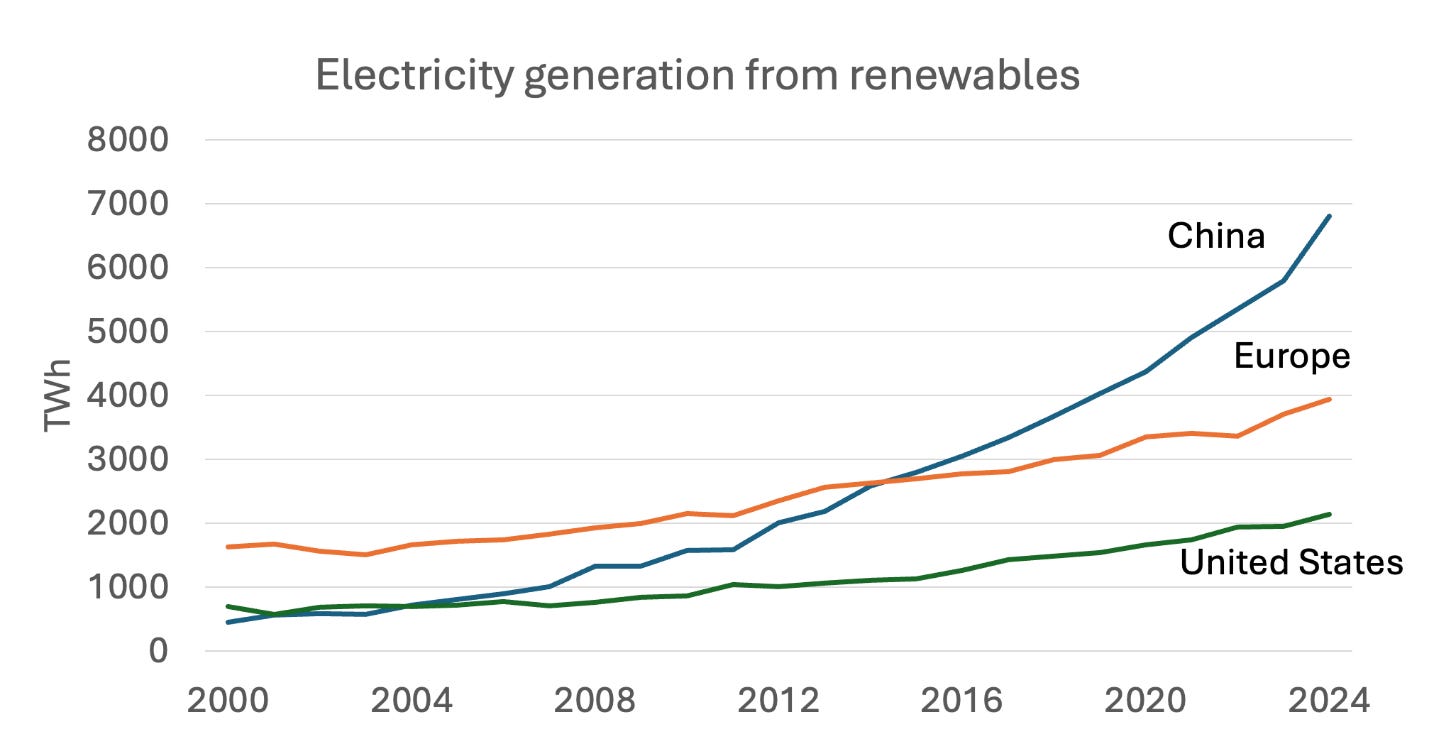Trump has ceded world leadership to China. But will China do enough?
Source: Our World in Data
The world’s largest solar farm — an array of panels covering 162 square miles, 7 times the area of Manhattan — is located in a remote region of China: A desert area of the Tibetan plateau, at an altitude of almost 10,000 feet. The thin air at that altitude means more intense sunlight, and hence greater electricity output.
The United States was in the planning stages of building a somewhat smaller but still very large solar farm in Nevada, the Esmeralda 7 solar project. But a few weeks ago Trump administration officials stopped the environmental review, which has probably effectively killed it.
In last week’s primer I wrote about the remarkable global rise of renewable energy, arguably the most important technological development of the 21st century. I mentioned briefly that the current U.S. government is hostile to this technology. Yet even before Donald Trump came back to power this year, America was in fact a somewhat marginal player in renewables.
Given Americans’ pervasive belief in U.S. exceptionalism, I think it’s likely that few Americans realize just how marginal the United States has become in the global renewable energy revolution and how badly we continue to lag behind. I was surprised myself when I began looking at the data. The chart at the top of this post illustrates my point: it shows electricity generation from renewables by the world’s three economic superpowers.
Today’s primer will be devoted to global divergences in the adoption of renewable energy — their causes and consequences. And for many it may serve as a wake-up call on how badly the U.S. has lagged Europe and China for over 20 years in the development of renewable energy.
Beyond the paywall I’ll address the following:
1. A global overview of energy consumption and the role of renewables in major economies
2. America’s unique reluctance to adopt renewables
3. Europe: Can it make the transition?
4. The China paradox
A subsequent primer will address the geopolitics of renewable energy, in particular the implications of America’s retreat from a crucial technology while China races ahead.

